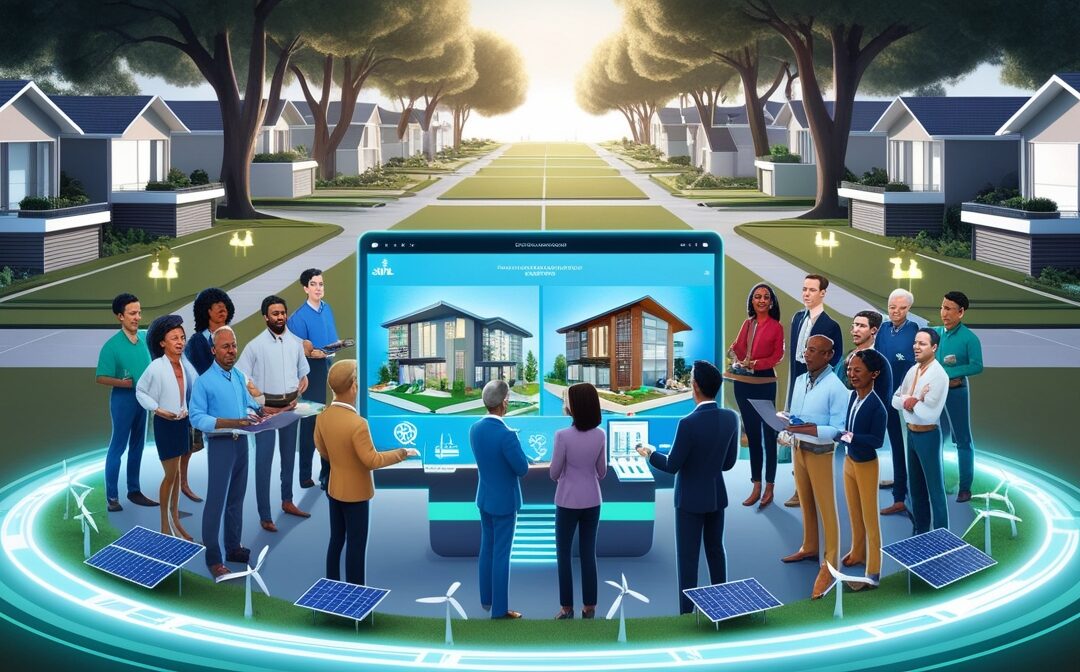As I prepare for my speaking engagement at the HBA of Greater Cleveland’s Economic Housing Forecast and Educational Conference, the advancements in artificial intelligence (AI) within the homebuilding sector are top of mind. The industry rapidly evolves as builders leverage AI to streamline operations, reduce costs, and deliver more efficient and personalized homes. Here’s an in-depth look at the innovative ways AI is shaping the future of homebuilding.
- Predictive Design and Customization
AI enables homebuilders to offer unprecedented customization in home design by analyzing buyer preferences and trends. Advanced algorithms assess user input—from lifestyle needs to aesthetic preferences—and create design options that align closely with each client’s vision. AI tools can also predict the features most likely to appeal to different demographic groups, helping builders design marketable and personalized homes.
- Efficient Project Management and Planning
Managing a construction project involves a web of timelines, budgets, and logistics. AI-powered platforms simplify this by automating project schedules, forecasting potential delays, and managing resources in real time. Machine learning models assess weather, supply chain delays, and labor availability, allowing builders to adapt plans proactively. This minimizes disruptions and ensures projects stay on track and within budget.
- Sustainable Building Materials and Energy Efficiency
As sustainability becomes a priority, AI is pivotal in helping builders select eco-friendly materials and design energy-efficient homes. AI-driven tools analyze material durability, environmental impact, and cost-effectiveness to recommend sustainable options that meet environmental and budgetary goals. Moreover, AI in smart home systems helps builders integrate energy-saving features, like automated lighting and HVAC systems, enhancing home efficiency and long-term cost savings for buyers.
- Enhanced Quality Control and Risk Mitigation
Quality control has traditionally been manual, but AI transforms it through automated inspection technologies. Drones and AI-powered image recognition systems can identify structural defects, deviations from plans, and potential safety hazards. This ensures high quality and safety standards and significantly reduces rework and inspection time.
- Smart Building and Home Automation
AI in smart home systems not only helps builders integrate energy-saving features, like automated lighting and HVAC systems, but also provides benefits for buyers. These features enhance home efficiency, reduce energy costs, and offer convenience, thereby increasing the attractiveness of the property. Predictive maintenance, another feature of AI integration, helps identify when home systems need maintenance, reducing costly repairs and increasing the lifespan of appliances and home systems.
- Optimized Land Selection and Site Analysis
Choosing the right location is critical for successful homebuilding projects. AI systems analyze geographic data, zoning laws, environmental factors, and local market conditions to identify optimal sites for construction. By evaluating this data, builders can make informed decisions about where to invest, reducing land acquisition and development risks.
The Future of AI in Homebuilding
While these applications transform homebuilding today, the future holds even more exciting possibilities. Imagine fully autonomous construction processes, AI-driven virtual reality home tours, and augmented reality applications for real-time customization. The potential of AI in homebuilding is truly limitless and promises to revolutionize the industry.
Key Takeaways
- AI in Design and Customization: Predicts buyer preferences, enabling tailored designs.
- Efficient Management: AI keeps projects on schedule and budget.
- Sustainability and Efficiency: AI aids in eco-friendly material selection and energy-saving designs.
- Quality Control: Automated inspections ensure safety and reduce rework.
- Home Automation: Builds innovative features for modern homebuyers.
- Optimized Land Selection: AI-based site analysis for risk reduction.
As I discuss these insights at the HBA conference, I will focus on how these technologies, particularly AI, are not just tools, but partners in the building process. By integrating AI, homebuilders are not just constructing homes—they’re building sustainable, innovative communities that meet the demands of a rapidly evolving market. This partnership with AI inspires us to rethink what’s possible in homebuilding.







